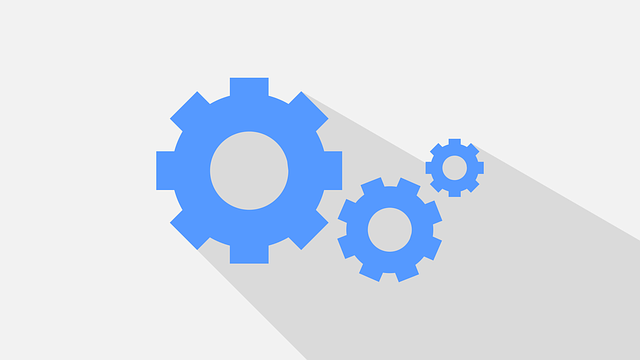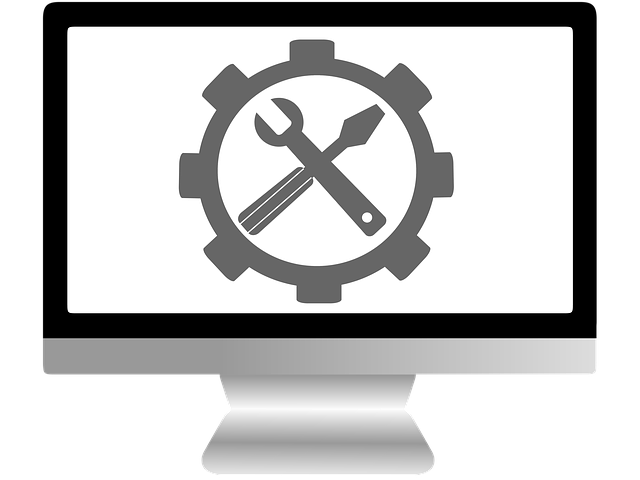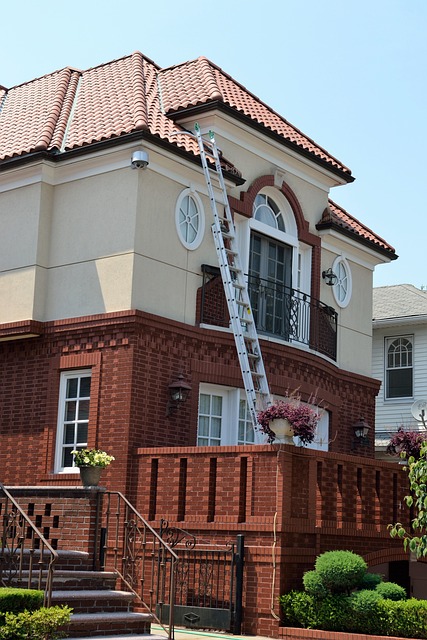When installing new home appliances, it's crucial to carefully follow manufacturer instructions, measure spaces accurately, assess electrical and plumbing requirements, and ensure gas lines are safe. Regular home repair and maintenance is key to maintaining appliance efficiency and longevity, preventing costly repairs by catching issues early. This includes inspecting hoses, clearing lint from dryer vents, and leveling and shimming appliances as needed. For complex installations or when in doubt, consulting a licensed professional adheres to safety standards and local regulations, ensuring proper alignment with industry best practices. Routine maintenance checks are vital for early detection of potential problems, saving time and resources by preventing minor issues from escalating. If an appliance malfunctions, start with basic troubleshooting using the user manual, but recognize when professional repair services are necessary, particularly for complex electrical or gas issues. Investing in regular home repair and maintenance not only extends the life of your appliances but also ensures they operate safely and efficiently, contributing to a comfortable and secure living environment. The expertise and specialized tools provided by professionals can justify their service costs through long-term savings and peace of mind.
Embarking on home repair and maintenance projects often includes managing appliances, a task that requires both understanding and skill. This comprehensive guide delves into the essentials of appliance installation for homeowners, detailing the common pitfalls to avoid and providing expert tips for upkeep and troubleshooting. Whether you’re facing a malfunction or looking to install new appliances, this article will equip you with the knowledge to handle it confidently. For issues beyond your expertise, we’ll also outline when professional appliance repair services are indispensable, ensuring the safety and efficiency of your home’s systems.
- Understanding the Basics of Appliance Installation for Homeowners
- Common Issues in Appliance Installation and How to Address Them
- Expert Tips for Routine Appliance Maintenance and Troubleshooting
- When to Call a Professional: Appliance Repair Services and Their Importance
Understanding the Basics of Appliance Installation for Homeowners
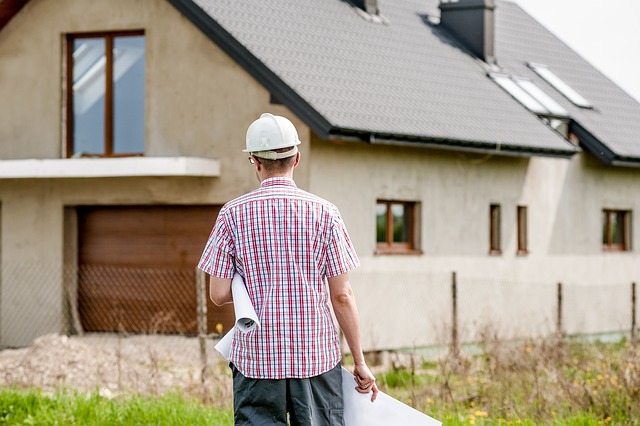
When tackling appliance installation in your home, a foundational understanding of the process is crucial for safe and effective integration. Homeowners should familiarize themselves with the user manuals specific to each appliance, as these provide essential guidelines tailored to the manufacturer’s recommendations. It’s imperative to measure the designated space accurately to ensure the appliance fits properly without causing any obstruction or safety hazards. For instance, when installing a refrigerator, allowing for ample clearance around it is vital for proper ventilation and functionality. Additionally, homeowners must consider the electrical and plumbing requirements necessary for each appliance. This includes verifying voltage and current ratings, ensuring that the circuit can handle the additional load without overworking or posing an electrical fire risk. For gas-powered appliances like stoves or dryers, it’s equally important to check gas lines for leaks and proper connections before operation. Proper grounding and ensuring that all safety protocols are followed will safeguard your home and family from potential harm during use.
Regular maintenance is a key component of prolonging the life of your appliances and preventing the need for costly repairs down the line. Home Repair and Maintenance routines should include periodic checks of hoses, seals, and connections to detect any signs of wear or leaks that could lead to bigger issues. For example, washing machine hoses should be inspected for bulging or cracking regularly to prevent water damage or bursts. Similarly, dryer vents should be cleared of lint buildup to maintain efficiency and reduce the risk of fires. Engaging in proactive maintenance rather than reactive repairs can save homeowners time and money by preventing minor issues from escalating into major problems. It’s advisable to consult with or hire a licensed professional for complex installations or when unsure about any aspect of appliance maintenance to ensure everything is handled according to industry standards and local regulations.
Common Issues in Appliance Installation and How to Address Them
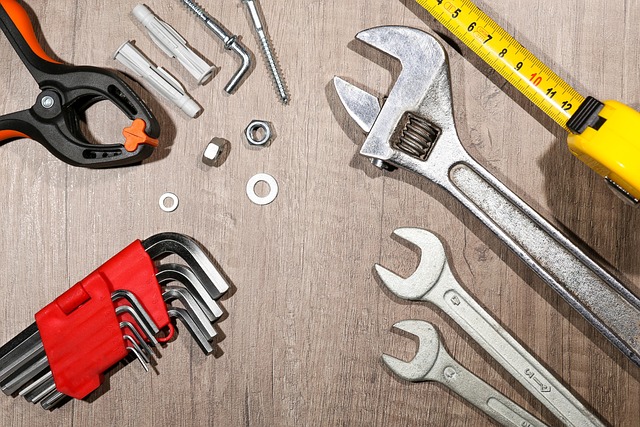
When it comes to appliance installation, homeowners often encounter a variety of common issues that can affect the functionality and longevity of their appliances. One frequent problem is improper electrical connections, which can lead to malfunctions or even safety hazards. To address this, it’s crucial to ensure that all connections adhere to local building codes and manufacturer guidelines. This includes verifying that the power source is adequate and that outlets are rated for the appliance’s voltage requirements. Additionally, ensuring that water lines, if applicable, are properly installed and sealed can prevent leaks that might damage the appliance or the surrounding area.
Another prevalent issue in appliance installation is misalignment or incorrect leveling of the appliance itself, which can cause undue wear on moving parts and lead to noise or vibration during operation. To mitigate this, it’s important to carefully follow the installation instructions provided by the manufacturer. This includes shimming and leveling the appliance to ensure it sits flat and operates within its designed parameters. Regular home repair and maintenance checks can also help identify these issues early on, allowing for prompt adjustments or repairs before they escalate into more significant problems. By staying vigilant and proactive with maintenance, homeowners can extend the life of their appliances and maintain a smoothly functioning household.
Expert Tips for Routine Appliance Maintenance and Troubleshooting

Regular maintenance is pivotal for prolonging the lifespan of your household appliances and ensuring they operate efficiently. Begin by inspecting each appliance monthly to catch issues early. For refrigerators, check door seals to prevent energy loss; clean the coils to maintain cooling efficiency. Washing machines benefit from regular drainage checks and balancing to prevent wear on internal components. Dishwashers require clear water paths and filters cleaned or replaced as needed to avoid malfunctions. Ovens and ranges should have their heating elements and vents inspected for accumulated debris, which can affect performance.
When troubleshooting, start with simple solutions before escalating to professional home repair services. If an appliance is not functioning correctly, refer to the user manual for diagnostic guidelines. Common issues like power supply problems or water supply kinks are often easily resolved. For more complex repairs, safety should be your priority. Disconnect the appliance from its power source and, if necessary, shut off the water or gas supply before attempting any repair work. Professional assistance is recommended for intricate fixes or when dealing with appliances connected to the house’s electrical system or gas lines. Regular maintenance can prevent many repairs by addressing small problems before they escalate, thus reducing long-term costs and ensuring your home’s appliances remain reliable and efficient.
When to Call a Professional: Appliance Repair Services and Their Importance

When encountering appliance malfunctions or issues, discerning when to call in professional appliance repair services is crucial for maintaining the integrity and efficiency of your home’s systems. If you lack the expertise to safely and effectively address a problem, professional intervention becomes imperative. For instance, gas leaks near appliances like stoves and dryers pose significant safety risks that only certified professionals can manage. Similarly, complex electrical issues within appliances often require specialized knowledge to repair without causing further damage or risking electrocution. Professional services are equipped with the latest tools and parts, ensuring a higher likelihood of a first-time fix. Regularly scheduled maintenance by these experts can also extend the lifespan of your appliances, preventing minor issues from escalating into costly repairs. By entrusting home repair and maintenance tasks to professionals, you safeguard your family’s safety, preserve the functionality of your appliances, and maintain a comfortable living environment, all contributing to the overall well-being of your household. Homeowners who invest in professional appliance repair services often find that the cost of these repairs is far outweighed by the longevity and reliability of their appliances, as well as the peace of mind that comes with knowing that any potential emergencies are handled by qualified individuals.
When it comes to maintaining the functionality and longevity of your home’s appliances, a blend of DIY knowledge and professional expertise is key. This article has demystified the basics of appliance installation for homeowners, highlighted common issues during installation, and provided expert tips for routine maintenance and troubleshooting as part of broader home repair and maintenance practices. Recognizing when to call upon the services of a skilled appliance repair professional is crucial for safe and effective resolution of complex issues. By understanding these facets, you can ensure your appliances operate efficiently, saving you time, resources, and enhancing the overall quality of your living environment. Remember, regular upkeep and prompt repairs are fundamental to maximizing the lifespan and performance of your household’s appliances.

